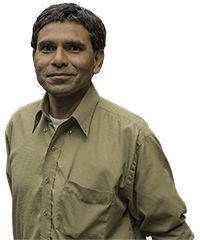Opinion
Mishra’s Mishmash: Socialdemokratiet likely to emerge as winners
Mrutyuanjai Mishra
This article is more than 6 years old.
Denmark is likely to get a new prime minister if we are to believe the present polls predicting the outcome of the election.
Lars wars
The current prime minister, Lars Løkke Rasmussen, has been in power since 2015. He heads the so-called blue bloc coalition in Denmark that comprises the liberal-right parties, and he is heading for a crushing defeat in the upcoming elections on June 5.
According to the latest polls conducted by Epinion for DR, the blue bloc will only be able to procure 40.9 percent of the vote.
Half of the campaigning period is now over, and the voters are defiant. They want change, and they want a new leader who will improve their schools and hospitals.
The young voters, especially, want a radically different environmental policy that drastically reduces emissions, thus punishing those who pollute far more strictly.
Attack of the clones
The red bloc, meanwhile, is on course to receive 52.3 percent, with the rest going to parties unlikely to feature in either coalition. Headed by Socialdemokratiet leader Mette Frederiksen, the party has not suffered like its sister parties in Europe, holding onto strong support from its traditional voters.
Such is the desperation now in the blue bloc that Rasmussen is trying to copy Socialdemokratiet’s welfare model, but the voters are smart enough to discern that it is probably a bluff and an attempt by the PM to continue in power unimpeded.
Paradoxically, it is Rasmussen who made the Danish expression ‘bluff number’ popular, and now he stands accused of several bluff numbers, which also include wanting to form a coalition with Socialdemokratiet in order to check the far-right parties.
The Paludan menace
This election might see the country’s most controversial party, Stram Kurs, win representation in Parliament. Its leader Rasmus Paludan, who kicks, throws around and burns Korans in public places, is an ethno-nationalist who wants to create a Denmark for ethnic Danes exclusively. He is promising to deport Danish citizens with Muslim backgrounds back to their countries of origin.
Luckily, neither the red bloc of centre-left parties nor the blue bloc of liberal-right parties want to include him in their respective governments. Nevertheless, Paludan will attract attention from international media, as very few right-wing parties anywhere in the world have professed measures as extreme as taking citizenship back from Muslims and resorting to the mass deportation of immigrants based on their ethnicity and religion.
However, despite their reservations about working with Paludan, it is fair to say that almost all the political parties have moved further to the right to entice voters. Even though Paludan will be excluded in Parliament, do not expect Denmark to be among the countries high on many immigrants’ wish-list in the near future. The conditions for entering the country and attaining citizenship will remain among the toughest in the whole world.

About
Mrutyuanjai Mishra
As a regular contributor to the Times of India, the country’s largest newspaper, Mishra is often sought-after by Danish media and academia to provide expertise on Asian-related matters, human rights issues and democratisation. He has spent half his life in India and the other half in Denmark and Sweden.










































